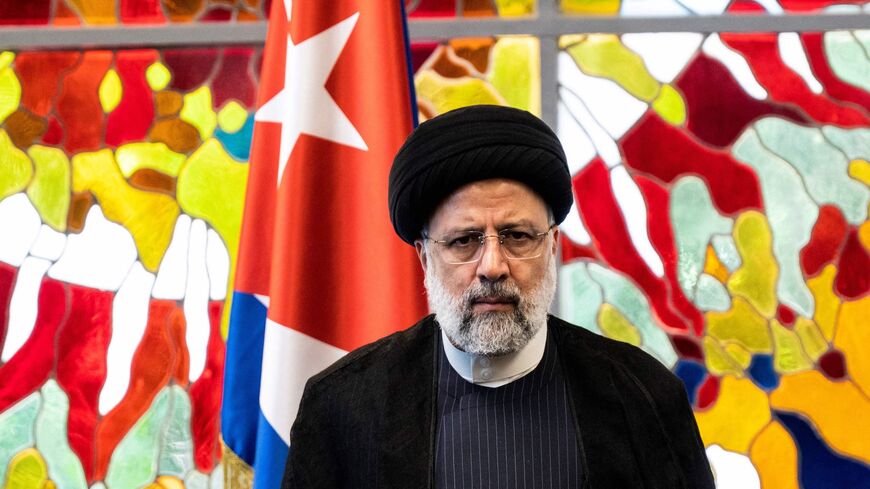Iran's President Ebrahim Raisi embarks today at the helm of a large delegation to three African nations as his administration pursues "diverse" and "balanced" relations in its foreign policy agenda, the state-run Tasnim news agency reported on Tuesday.
The first leg of the tour will take Raisi to Kenya early Wednesday for the signing of bilateral agreements. He will depart for Uganda and Zimbabwe afterward to complete the three-day tour.
The trip marks the first by an Iranian president in over a decade. Raisi's predecessor, moderate Hassan Rouhani, did not visit a single African nation during his two-term tenure, drawing fire from the sitting conservative administration for "shunning" the continent and focusing "excessively" on mending ties with Western adversaries.
While Iran's relations with African countries were "nearly frozen" during Rouhani's eight years, as a leading state-run news agency wrote, the Raisi administration managed to double the volume of trade with Africa, according to statistics by the Iran-Africa Traders Association.
Still, overall figures remained significantly lower than those of other states investing in Africa. Iran's sum annual trade volume with the entire continent stands at $1.2 billion, making up only 1% of African nations' total foreign trade, the ISNA news agency reported.
In Kenya, the first leg of Raisi's tour, Iran is set to clinch a series of agreements in hopes of expanding its current trade worth $53 million, which is mainly constrained to crude byproducts, petrochemicals and machinery. Iran is capitalizing extensively on an existing direct maritime route between the two countries to ease trade for its private firms.
While on the tour, the Iranian delegation will also be particularly pushing for cooperation in such areas as mine exploration, extra-terrestrial agriculture and knowledge-based technology. Those fields, according to pro-government activists, are a "red carpet" of investment awaiting Iran, which now has to seize the chance after losing sight of the vacant "capacities" for years.
Iranian authorities are also looking distantly on the horizon at establishing economic influence in Africa, and Foreign Ministry spokesman Nasser Kanaani hailed the continent as the land of "opportunities."
Government-funded media wrote extensively on how Iran has been missing out on competition with China, Russia, and regional rivals Saudi Arabia, the United Arab Emirates and Turkey. Yet to the disappointment of economic actors, a key obstacle has been passive diplomacy. Iran currently operates embassies in only 21 out of the 54 African countries.
The Iranian president's Africa tour falls within the larger pattern of his hectic foreign policy agenda, as he has gone the extra mile to mitigate the impacts of crippling Western sanctions, which have meant a battered economy and a national currency plummeting to all-time lows.
In search of new alliances, Raisi has embarked on over a dozen visits to "friendly" states, from China to Latin America, only in the past 23 months. His administration prides itself also in finalizing the Islamic Republic's long-sought ascension into the Shanghai Cooperation Organization while engaging in a flurry of diplomacy for another project to join the BRICS group of nations, which is comprised of large economies such as Brazil, Russia, India, China and South Africa.
"Africa could serve as Iran's gate to BRICS," said Iranian expert on African affairs Ahmad Bakhsh in an interview with the banking and economic news outlet IBENA. He noted that a key topic Raisi ought to prioritize is de-dollarization in trade with African nations. The ambition to de-dollarize trade has been raised by Raisi on nearly all of his foreign visits — and it's an ambition that Tehran direly needs to overcome the "hegemony" of the US dollar, thus being able to sell its lifeline crude in local currencies and gradually pull its economy back on track.








